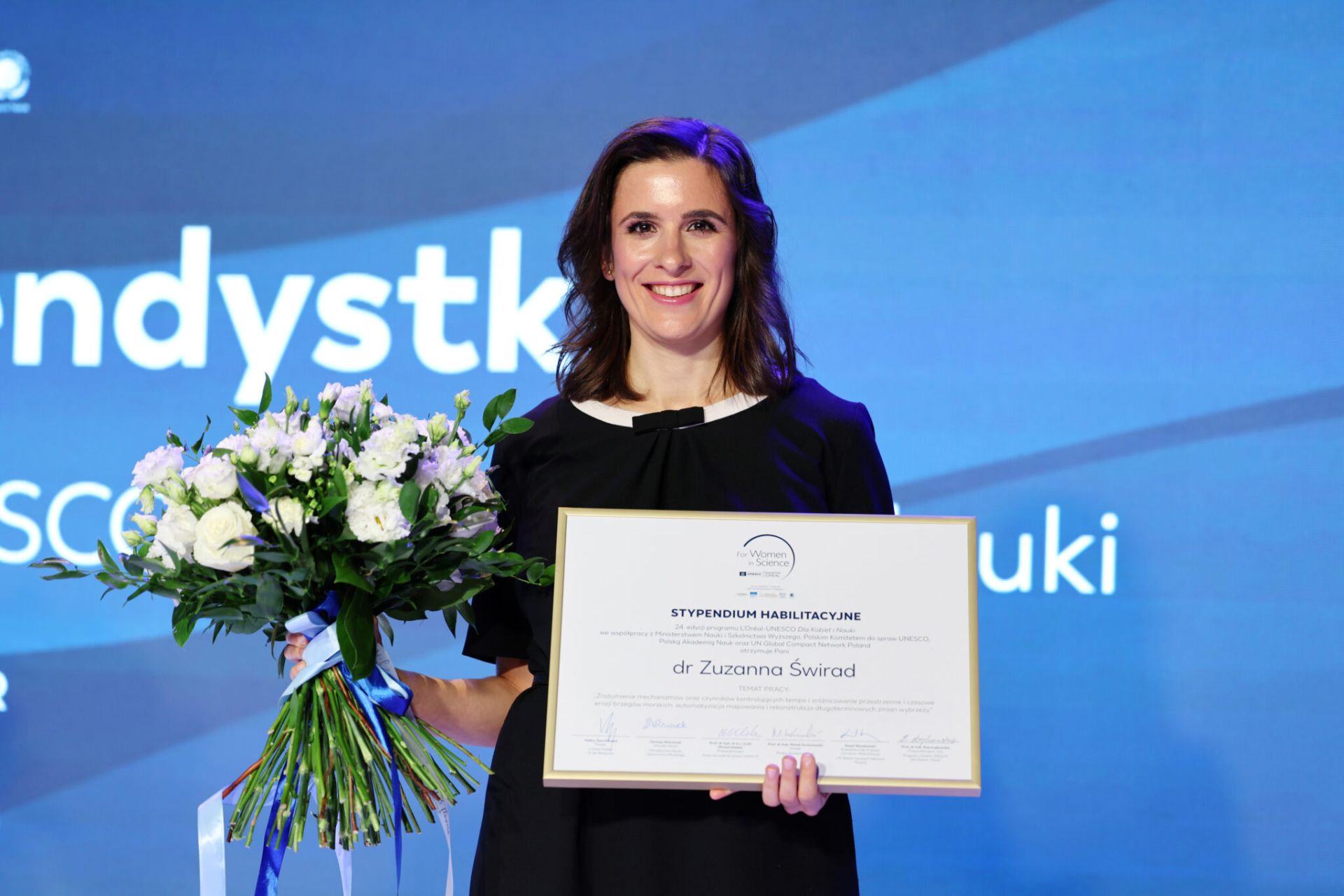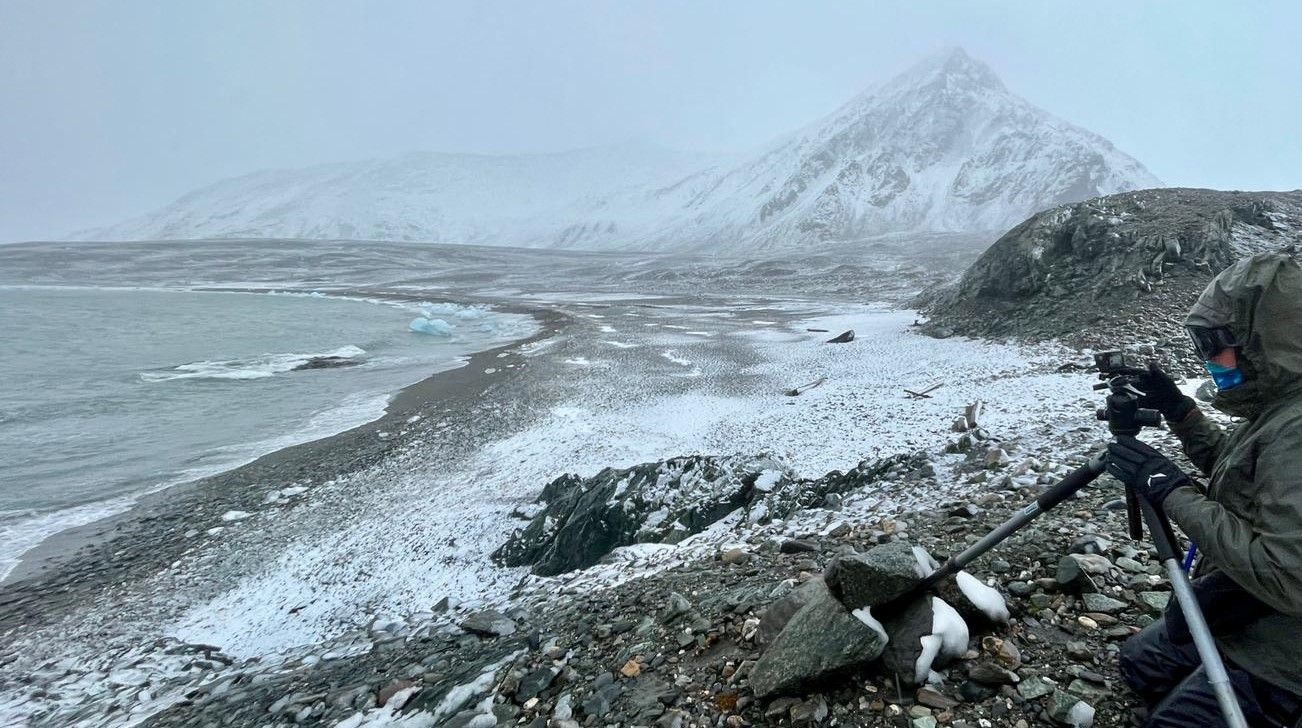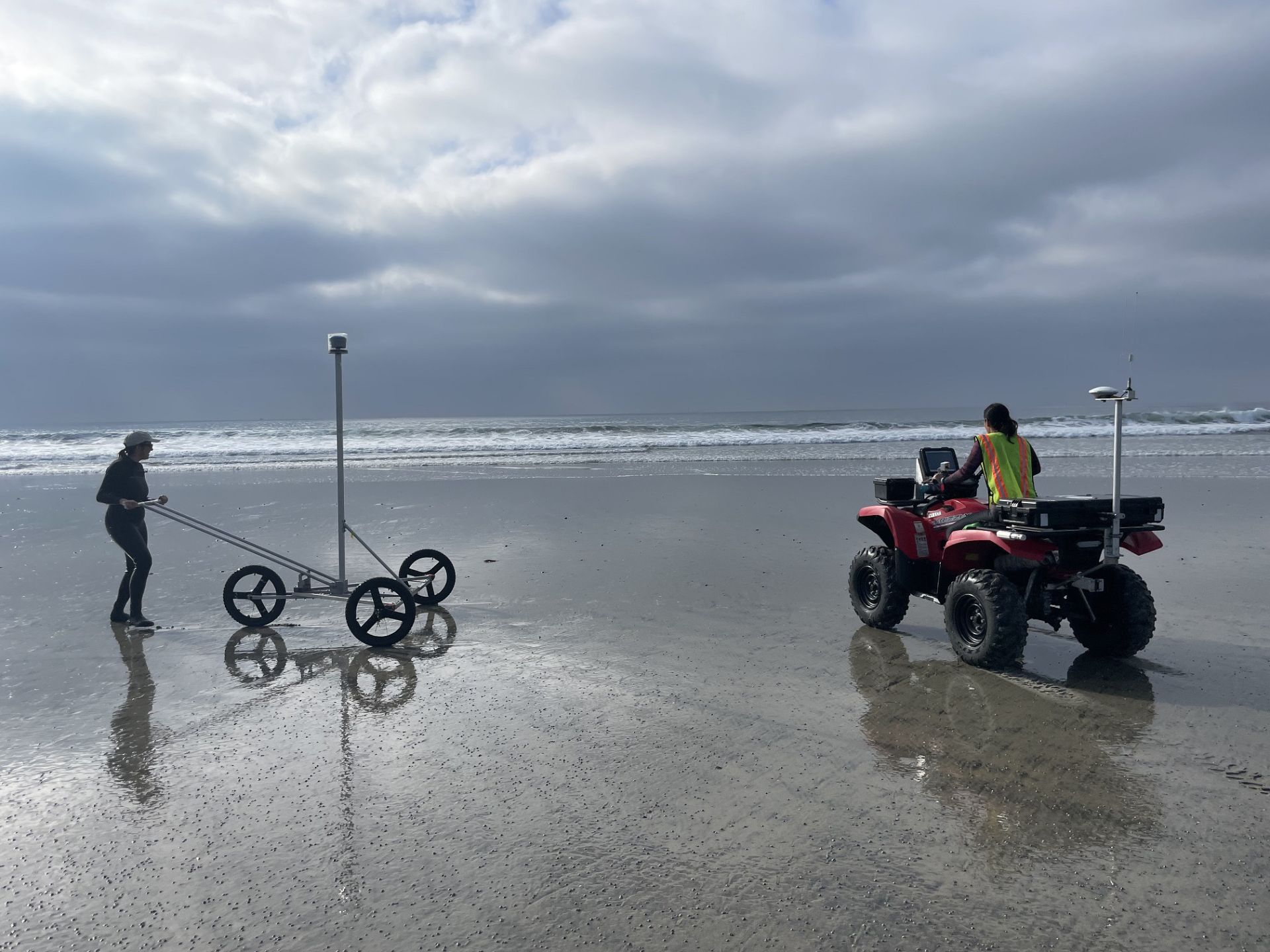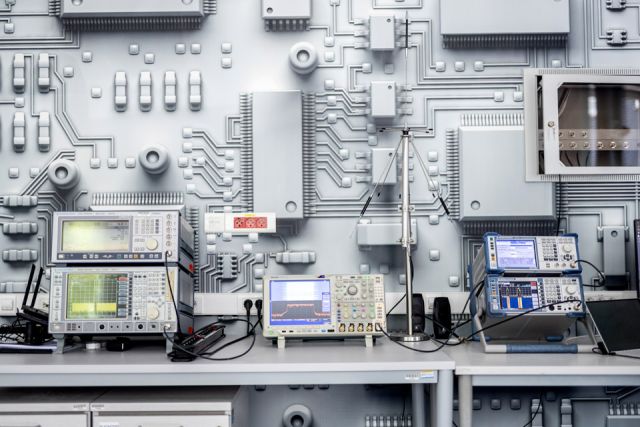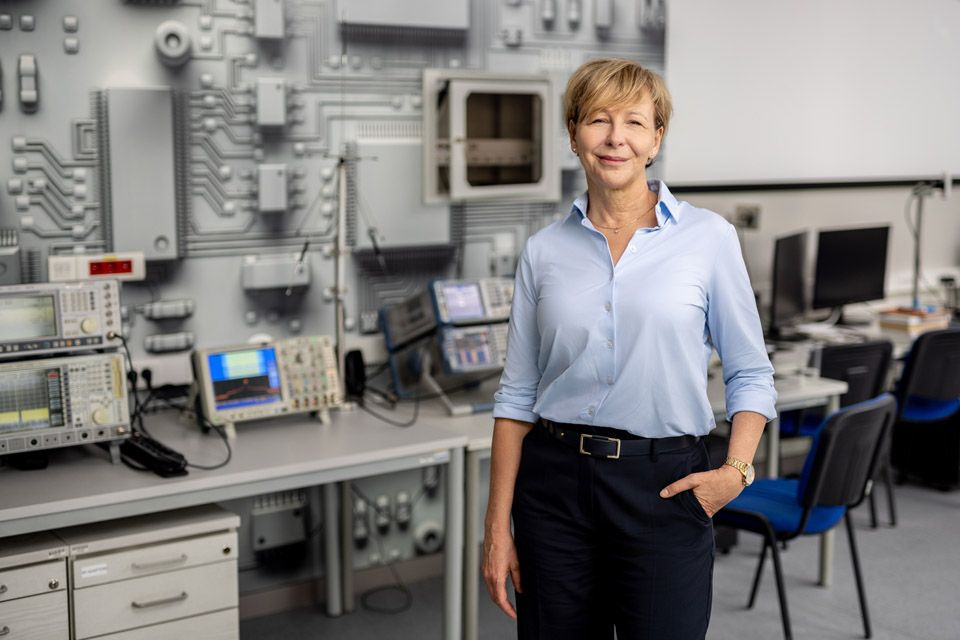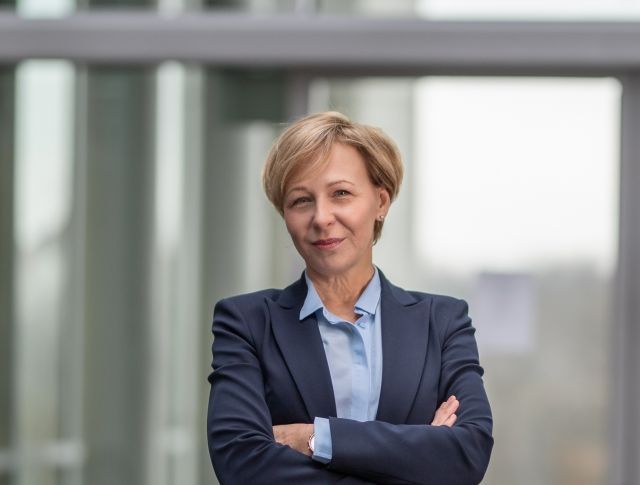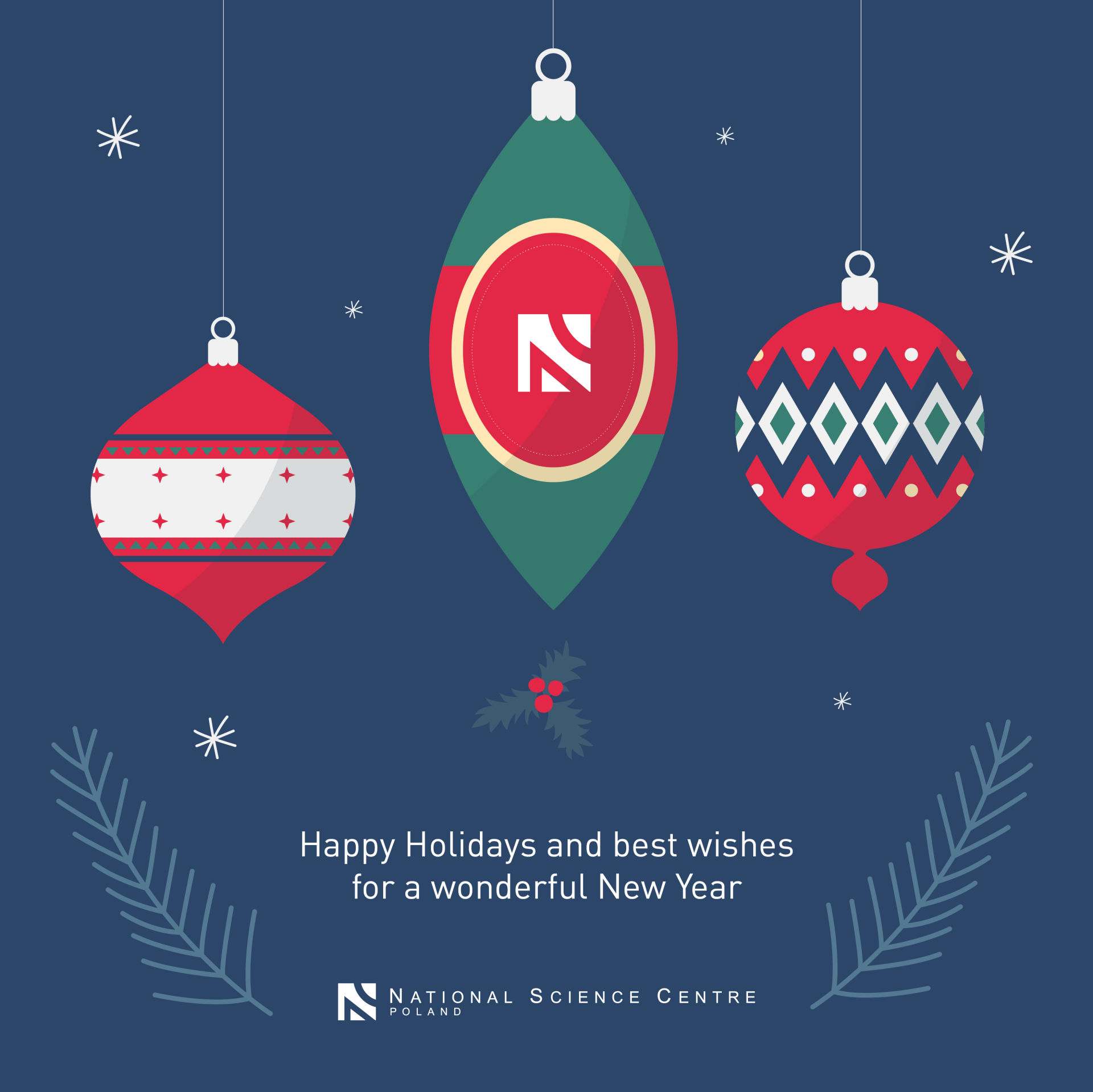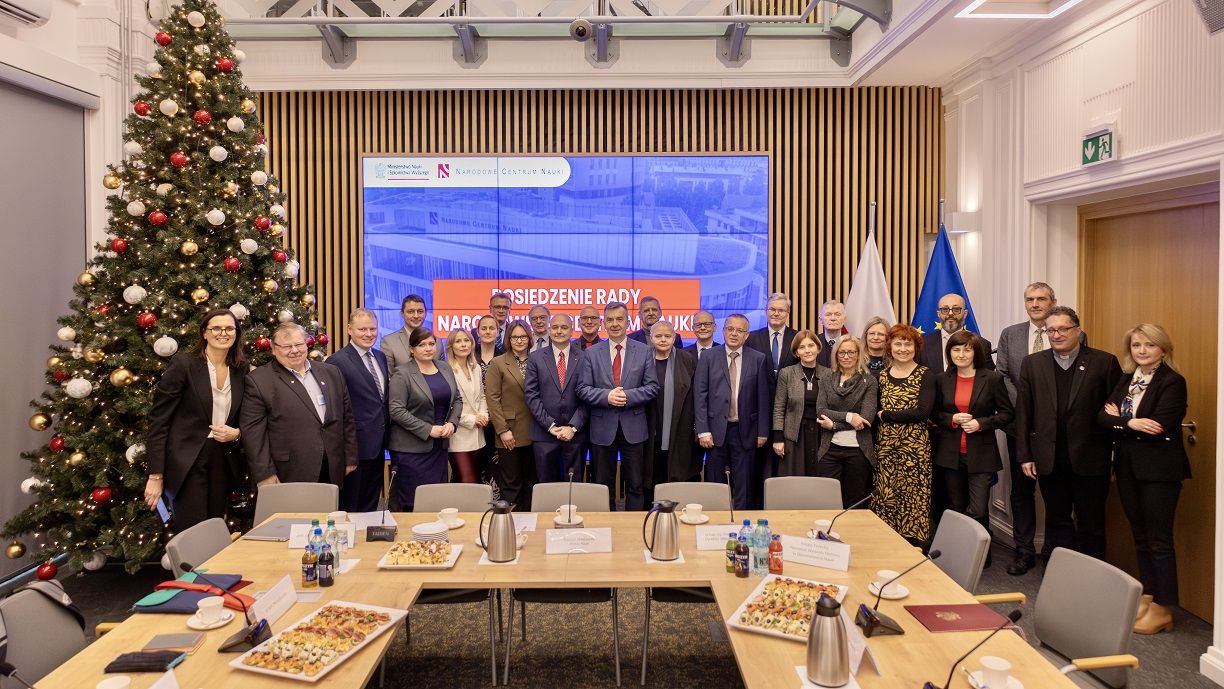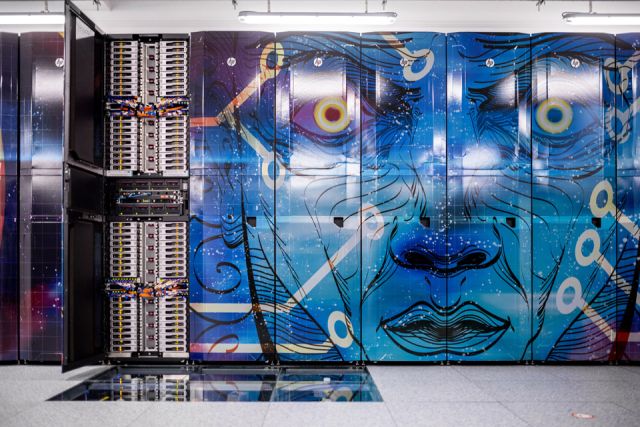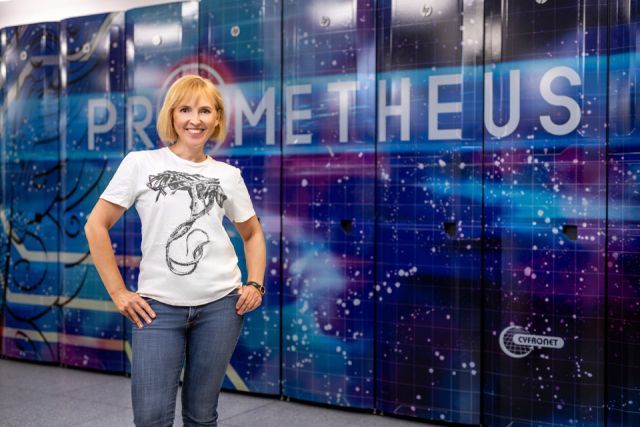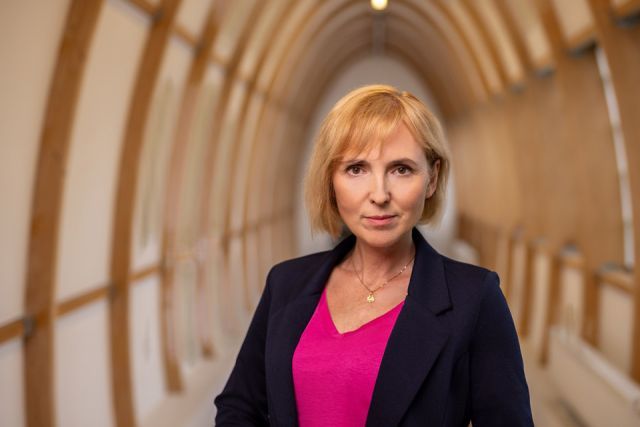“Despite various difficulties, I have been more able to spread my wings here”, says Prof. Anna Matysiak. The economist and demographer from the Faculty of Economic Sciences of the University of Warsaw tells Anna Korzekwa-Józefowicz about her research, the research conditions she has found in Poland, and the best ERC application strategy.
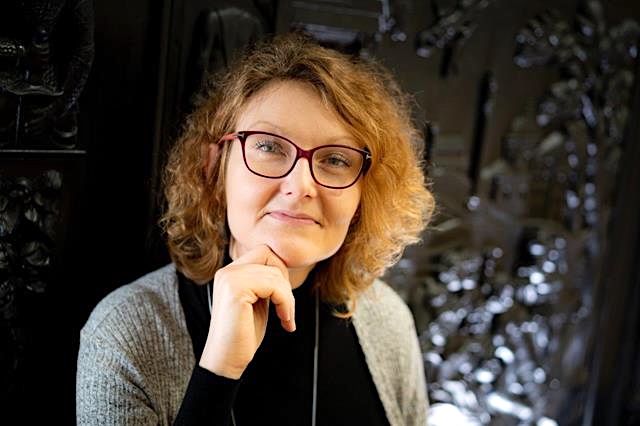 prof. Anna Matysiak, fot. archiwum prywatne
Professor Anna Matysiak has worked at the Warsaw School of Economics, the Max Planck Institute for Demographic Research and the Vienna Institute of Demography of the Austrian Academy of Sciences. She is one of the first winners of the NCN Award (2013); in 2019, she also won an ERC Consolidator Grant. Her research is focused on how family-planning decisions are affected by technology and the rise of remote work and flexible working modes and hours. She also has experience as an expert reviewer in ERC calls.
prof. Anna Matysiak, fot. archiwum prywatne
Professor Anna Matysiak has worked at the Warsaw School of Economics, the Max Planck Institute for Demographic Research and the Vienna Institute of Demography of the Austrian Academy of Sciences. She is one of the first winners of the NCN Award (2013); in 2019, she also won an ERC Consolidator Grant. Her research is focused on how family-planning decisions are affected by technology and the rise of remote work and flexible working modes and hours. She also has experience as an expert reviewer in ERC calls.
Warnings that went unheeded
Anna Korzekwa-Józefowicz: We met at a press conference that proclaimed, among its main slogans, that “Science Is in the National Interest”. Where would we be now if politicians had listened to demographers twenty years ago?
Anna Matysiak: That was really a pivotal moment when they should have listened to population scientists. We were already raising concerns that the number of births in Poland would soon decrease dramatically. The number of women of reproductive age was already relatively low. We knew that if they really ended up having fertility rates as low as we were seeing at that time, i.e. a little over 1 child per woman on average, in twenty more years the number of women of childbearing age would be even lower and the demographic situation in Poland would become dramatic. And this is exactly what has happened.
We still had time to act back then. We knew that those generations of women did want to have children but encountered various roadblocks, including financial problems, difficulties in reconciling jobs with childcare, and very limited access to nurseries and preschools. Now, the situation is quite different: we provide financial support mechanisms for families and daycare for small children, we have a more developed network of preschools, and we are much wealthier as a country. But we have fewer women of childbearing age. If previous generations had borne more children, today our demographic situation would be better.
Of course, demographics is not just about births. It is also about migration and public health. All these factors are important. And, yes, we should have been heard twenty years ago, and we should be heard today. Because today we are faced with new, equally pressing issues.
What should decision-makers hear from you today? What public policy changes require urgent attention?
I think that many of the measures that followed our previous appeals, even if not immediately, did go in the right direction. Financial support mechanisms for families or institutional solutions such as improved access to preschools are definitely examples of positive change. However, an area that is still really not up to scratch is access to healthcare. This affects people at different stages of life: it is a problem for people who are taking their family-planning decisions, for parents of little children, for the middle-aged, and for senior citizens, who have limited access to preventive care. Governments have come and gone, and the problem has not been properly addressed which, of course, is going to have repercussions for everyone.
Even now, the number of people of productive age is decreasing, so we would like to keep those who can work professionally active for as long as possible. But for this to happen, they need to have good access to healthcare. This is a key issue; improvements in healthcare should be our absolute priority.
Another growing challenge is migration. We have welcomed large numbers of refugees from Ukraine; even before the war, we already had economic migrants from that country. In the future, migration pressure from other regions will also increase, because of climate change and because Poland is increasingly wealthy. We need to take in migrants because our working-age population is decreasing, but their integration will pose a challenge. We need to help them learn our language and facilitate their cultural and social integration.
When it comes to fertility, we know that the number of births is on the decline. The problem is that we don’t have enough good data to understand why younger generations of women in Poland are deciding to have fewer children. We need to investigate what barriers are still there and how they affect family-planning decisions. And learn what these new generations of women want in terms of family planning.
Many developed countries, such as Germany, the United Kingdom, the United States or South Korea, collect panel data, which allow respondents to be tracked over a period of many years and analyse their life decisions, such as, for instance, when they start their first job, have their first and second child, all in connection with their situation in other areas of life (having a partner, relationship quality, wealth, employment, health status, plans and attitudes with regard to different aspects of life). In Poland, we don’t have any such data, which makes it difficult to do research and recommend effective solutions.
Why don’t we have it?
In the past, there was a panel study, “Social Diagnosis”, which collected data from the same group of people at two-year intervals; this was used to track their lives and analyse different correlations. Unfortunately, the study was discontinued, and we really need such data today. What we do have is cross-sectional data, that is, data collected at one point in time from a specific group of people. The next dataset is already collected from a different group, so we are not able to track individual careers. And panel data are extremely important for research, be it on education or professional careers, and their correlations with family life.
Another important kind is administrative data. Administrative data are of very high quality, because they are based on facts rather than self-reporting by respondents, which may be prone to error, for reasons such as forgetfulness or unwillingness to disclose information. Such data, of course, don’t include everything; for instance, they lack information about personal attitudes. But what they do contain is extremely precise. In Nordic countries, or countries like the Netherlands or Estonia, researchers can obtain access to registry data in a way that does not allow individual people to be identified. Germany is also improving access to registries.
In Poland, unfortunately, we still don’t appreciate the importance of such data or of laws and regulations that would allow them to be shared with researchers. While attempts to that effect are being made, there is still no legislation to allow it. This seriously hinders our research and our ability to draw conclusions and prepare public policy recommendations. At present, a lot of what we know is based on research done in other countries.
I understand that such data are collected by a very wide range of institutions. Which ones should share them with researchers?
There was this initiative, known as the Integrated Analytics Platform, which was meant to collect administrative data from different institutions, such as the Ministry of Finance, the Social Insurance Institution (ZUS), Civil Registry Offices and Employment Offices. It pooled information about the careers pursued by Polish people, their income, children, marriages, etc. So such data already exist; the investment was completed thanks to the shared commitment of Polish officials and researchers. The problem is that there are still no laws that would allow them to be used in research.
And do politicians ever ask you for your recommendations? Some countries have set up parliamentary teams to provide decision-makers with the information they need to take research-driven decisions. A case in point is Luxembourg, where the local equivalent of the NCN has its “delegation” in the parliament.
Ministries do come to us for advice, but these are usually short-term consultations; they might need to draw up a new demographic strategy, for instance, or prepare major changes in legal regulations. In my opinion, Poland doesn’t have enough research institutes whose statutory mission would include evaluating public policies, assessing existing data and analysing the extent to which they are enough for studying social phenomena. Or institutes that would be continually represented at higher levels of power. Now that the government has changed, and along with it new ministerial representatives, contacts with researchers must be built from scratch. This means that we need to explain, to clarify and to build relationships yet again. For us researchers, this is extremely hard to do. We have our duties, teaching obligations, research projects, various administrative and organisational roles at our universities, and even though we really care about sharing our knowledge and shaping public policy, it might be hard for us to get involved on an ad hoc basis. In addition, evaluating policies and creating new policy recommendations is not easy at all, it requires the right kind of data, in-depth analysis and infrastructure (e.g. the panel data that I mentioned before), which takes years to build. Unfortunately, these processes go beyond the political horizon, which is, by its very nature, oriented toward the short term.
Technology, jobs market, parenthood
 In your ERC project, you study how globalisation- and technology-driven job market changes affect family-planning decisions. What is their exact impact?
In your ERC project, you study how globalisation- and technology-driven job market changes affect family-planning decisions. What is their exact impact?
Our research suggests a very strong educational gradient. Those who work in sectors that have deployed automation technologies don’t always lose out on this change. In terms of professional opportunity, the hardest hit are those with low or mid-level educational attainment, while those with a good education can even benefit: they enjoy greater opportunities for growth, higher income levels and more stable jobs. And this in turn affects their decisions on whether to have kids. People who benefit from technological change are more likely to decide to have a child, while those who lose out on it, decide to have children less frequently or do so later in life.
Germany is an interesting example. Our research shows that highly educated employees are less likely to remain childless than people with lower qualifications, which represents a major change with respect to the past. Previously, it was people with lower qualifications who were less likely to be childless; today, the trend is being reversed.
Another interesting finding has to do with flexible forms of employment, such as remote work and flexible hours. Access to such opportunities also privileges those with higher educational attainment levels and a higher position in the job market. These new forms of employment don’t have a significant impact on people’s decision to have their first child, but they do affect their decision to have a second one. They allow them to combine their job with parenting duties, which privileges better educated social groups.
Are these results similar for different countries?
Our research covered Germany, Sweden and the United States. For men, the results turned out to be very similar in all those countries. In sectors where new technologies are replacing traditional work, highly educated men don’t lose out and often even benefit from the change. And our research shows that these men are more likely to decide to have their first child. Men with lower educational attainment enjoy fewer opportunities for professional growth and thus are less likely to have offspring.
As for women, the results are more varied. In Sweden, the trend is not unlike that for men: women with higher education and better job opportunities are less likely to remain childless. In Germany and the US, however, the situation is rather different: women’s professional growth comes into conflict with family planning. This is because men in these countries are less involved in parenting; there is also less state aid available for working mothers and couples as compared to Sweden, which offers better conditions for combining work and family life.
For men in Germany and the US, professional growth increases the likelihood of having children; for women, it is a hindrance. This shows the pivotal role that men’s and women’s changing social roles play in the process of deciding whether to have children. While women’s roles have undergone an immense change – women no longer want to be just mothers, they want to find fulfilment in being a mum and have a career – men’s roles have been very slow to evolve. And this is one of the reasons behind the low birthrates observed in many countries.
And what does it look like in Poland?
Unfortunately, our study doesn’t cover Poland, and it doesn’t because, as I said, we don’t have enough data. We are analysing data from countries that share them. I am collaborating with partners in Sweden, Great Britain, Norway and Germany, we are also using Australian and American data, because these countries provide access to the information we need. I would really love to do research on Poland. A lot of my ideas touch on our problems but I can only do so much here. I was even able to run a study for the Czech Republic – but in Poland, it’s still a challenge.
The social roles of men and women in Poland are in a period of transition. They can no longer be called traditional, but we are seeing tensions and various models still exist side by side. The results for Poland would probably be more like those for Germany, but this is just an educated guess.
Is your project going to propose any policy recommendations?
This is not our main goal, but our research findings can indeed form the basis for policy recommendations. We are also planning to analyse the context present in different countries, including aspects such as their job market institutions, family policy or social attitudes, and their impact on relationships between the job market and decisions about whether to have children. Some public policy guidelines could also be inferred from these analyses.
Based on what we already know, we could mention two key issues. First, we need to provide more support for women, especially those who have many opportunities for professional growth. It is important to make sure that the opportunities that arise in connection with technological change don’t discourage them from having children. Second, we need more support for individuals and couples who are struggling in the job market, especially those with low and mid-level educational attainment, who are at greater risk of suffering the consequences of rapid technological change. For them, new technologies often mean unstable employment or lower job quality.
It seems to me that we will all be threatened by AI very soon. Some creative professions are supposed to disappear in a not-so-distant future.
I am not very worried that new technologies will replace us. What’s more likely is that they will keep changing the way we work and forcing us to adapt. In this sense, I think that work will be more demanding. Rapid technological progress means that we need to invest in continuous learning and upskilling. We are at greater risk of losing our jobs and having to rebrand. Of course, technological progress is good for economic growth and the global position of Poland, but the constant pressure to adapt can make it difficult for people to decide to have children. When you already have one kid and you need to rebrand or learn new skills, you might have little headspace for another one. And this is why those who say technology will help us work less seem unrealistic to me. In reality, I believe the demands on us will increase. For instance, in my job, writing five articles per year might no longer be enough; the technologies that make our work easier might mean that the expectation will now be twenty. And of course, while some tasks can be done faster, we still need time for reflection, we need to interpret our findings.
Not everyone has the luxury of being able to continually keep track of changes, adapt, rebrand. In couples, it is men who are more likely to be able to do that, because they get less involved in childcare. This gives them time to build a career and climb the professional ladder. In turn, women, who are saddled with most family responsibilities, often change careers or look for jobs that are more compatible with family life. As a result, there are professional gaps between men and women. Research shows that women with comparable levels of education also enjoy similar opportunities in the job market as men up until the age when it is common to have children. This is when the gap between professional status and pay opens up – and it never really closes again.
However, women are increasingly less likely to accept such inequalities. If we don’t find a way to help them combine a career with family life, if their partners don’t take over half of the tasks involved in childcare and housework, they will be delaying pregnancy or deciding to stay childless more often.
Returning to Poland
You applied for the ERC grant when you were still working in Vienna. But in the end, you decided to return to Poland. .
I won a NAWA Polish Returns grant. I wanted to live here even though I was really afraid to come back, not sure what to expect at my university in Poland. But when I was working abroad I realised that tensions, conflicts and administrative issues come up everywhere.
People I talk to normally disagree. They usually complain of the conditions for doing research in Poland.
The place I worked at in Austria was an excellent international centre for demographic research, but even so, it still had its administrative problems and people issues. And yes, when I came back, I realised I felt good here in Poland. In a sense, I think I can do more over here. I lived in Austria for six years; that may sound like a lot, but in Poland, I know how to move around, how to talk, I know the social codes.
When I returned to Poland, I managed to forge contacts and meet new people very quickly. In Austria, it had taken me much longer. This confirmed to me that I was where I belonged; I can be more effective here. I established a large research team in Poland, and I feel I wouldn’t have been able to do the same in Austria. Despite various difficulties, I have been more able to spread my wings over here.
Thanks to my funding, I was able to hire a fantastic person, a science manager, to manage my projects. Her work shows how incredibly important it is to have such people to support researchers; we should appreciate their contribution, also by rewarding them financially.
The ERC grant winners I’ve talked with before have said that one of their main “application strategies” was to build recognisability. What was yours?
I agree that being recognisable is important. You can earn a name for yourself by publishing, speaking at conferences, visiting international research centres, even for shorter periods, such as two weeks, if you cannot stay longer. This makes people realise, oh, there is this person out there who does this interesting research, even if they haven’t published any findings yet. It’s also important how you present your ideas; if you know how to speak in an interesting way and engage your listeners, you will be looked at differently. When, back in 2018, I won an award for population research from the European Association for Population Studies, which was given to me at the European Population Conference, a friend of mine, also a demographer, said to me: “Grab this opportunity. You stood up there, everyone saw you. You have an idea, write a grant proposal now”. And, indeed, the reviews of my proposal brought up this award a lot. In the eyes of my reviewers, it made me more credible; they knew I was doing high-quality international research and that I could be trusted with doing what I had planned to do.
From my experience on the ERC Consolidator Grant panel, I remember that when we evaluated a proposal, we would focus on its contents, to see whether it was interesting and innovative, but we also considered feasibility. We looked at the previous record of the applicant, their publications, experience in working with different scientists and research contacts that could prove useful in their research project.
ERC in Poland: how to increase our odds of success?
Scientists working in Poland have won fewer than 90 ERC grants out of 16.8 thousand the agency has awarded since it was established. What can we do to win more?
I think that one of the main problems is that few people even apply for ERC grants at all. I noticed this when I sat on the panel: the number of applicants from our region was very low, and this automatically translates into a very low number of grants.
At universities, I often meet researchers who think these grants are out of their league and don’t even try to apply. And in reality, they do have a chance, even if at first they fail. I speak openly about the fact that my first proposal was rejected. I only pulled it off the second time. I know many other people who also won an ERC grant after more than one attempt. What matters is that you don’t get discouraged and keep trying.
Preparing a proposal, however, requires humongous work. In Vienna, I had the great luxury of being able to spend three or four months just reading and analysing the literature. Even though I specialise in the labour market, I still had to delve into a lot of new issues concerning the impact of technology or globalisation. In Poland, especially at universities, where researchers have other duties in teaching, administration and organisation, such ability to focus is much harder to come by.
If I were to write another proposal, I would like to have enough space to reflect in peace, to focus and take my mind off other duties. This would require support and understanding on the part of university authorities. To work on a proposal, researchers need to have the right conditions, which are still difficult to achieve in Poland.
Another problem is the lack of access to sample proposals. I have noticed that some researchers get down to writing theirs without having seen a single well-prepared application. And knowing what a good proposal looks like could help them understand the standards and requirements. At my previous institution, I knew people who had already won such grants, so I could easily look at their proposals. On my own initiative, I also had access to proposals written by co-workers from different countries, for instance, from Italy or Belgium, thanks to international contacts that I had built. This is something that’s still missing here.
Some countries didn’t get many grants in the past but have now made huge headway: Spain or Italy, for example. They keep trying and encourage researchers to apply. At my institute in Vienna, there was even a pressure on us to apply.
I am assuming that the second time around you didn’t submit the same proposal to the ERC. What changes did you introduce between your first and second attempt?
I really, really liked my first proposal. Later on, I submitted it to an Austrian agency, also without much luck. In the end, I abandoned that idea and focused on another one, which was closer to my professional experience: fertility and the job market. This allowed me to show how I could combine two fields I knew really well. And that helped a lot.
Our attempts, even if unsuccessful, always teach us something. There was a time when Polish researchers didn’t know how to write a good proposal for the NCN. And now they do. The same can happen with the ERC: you just need to understand what is important, what you need to emphasise, how to demonstrate that the project is feasible. To do so, you have to consult examples of previously successful proposals and talk with people who have already won ERC grants.
There is still very little support available at universities but it’s important to make sure researchers don’t feel like their efforts are in vain, even if they haven’t won a grant just yet. The proposal can always be improved, resubmitted or submitted to another call, e.g. to the NCN. It is really essential that universities appreciate these efforts and tell them “It’s great that you’ve tried”.

